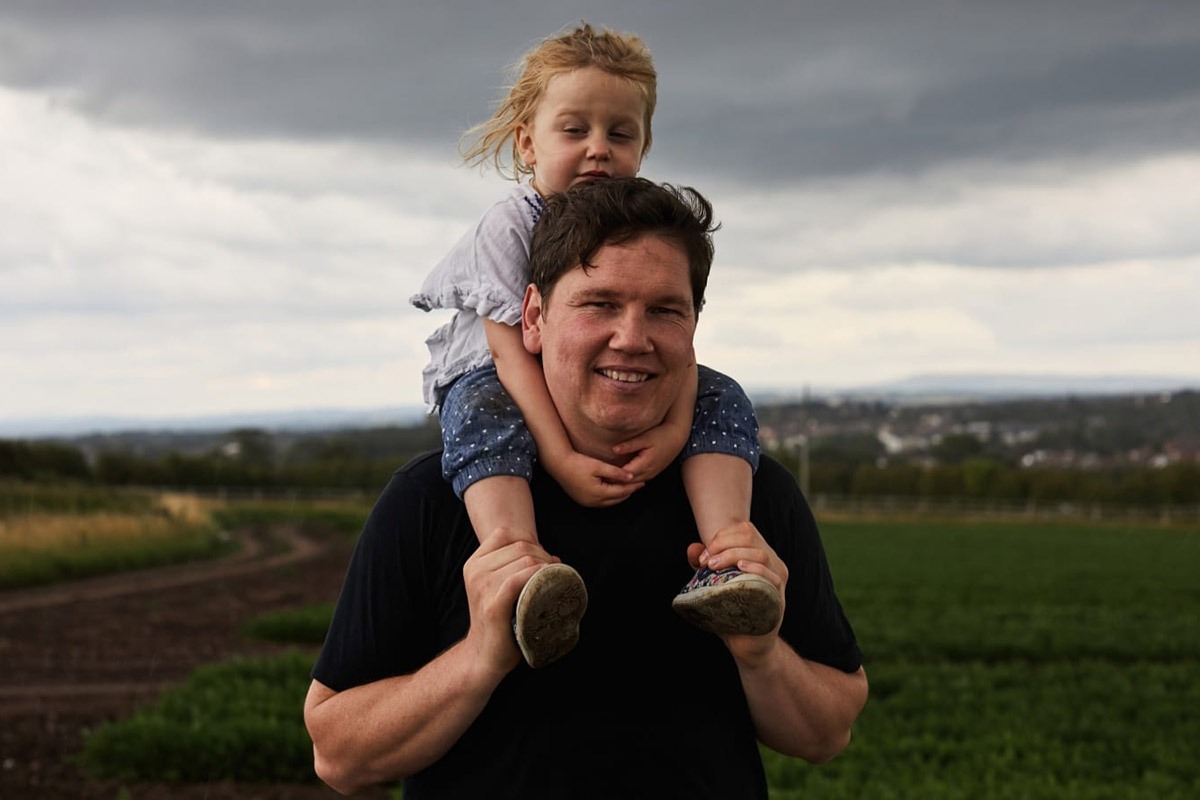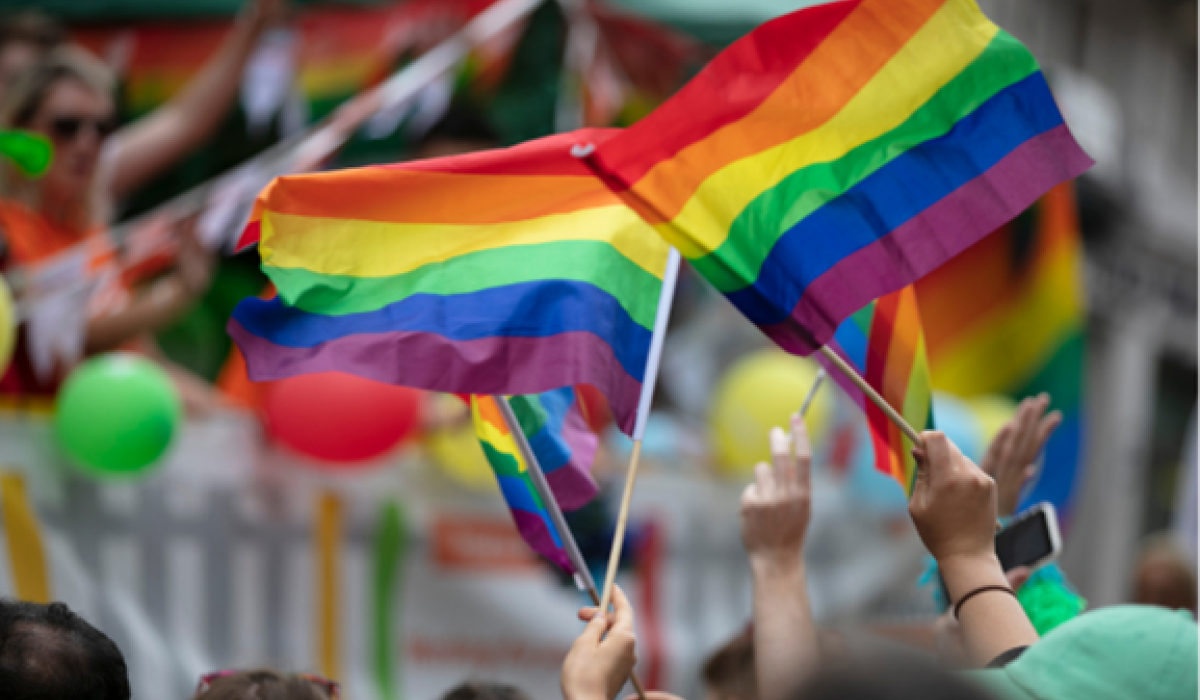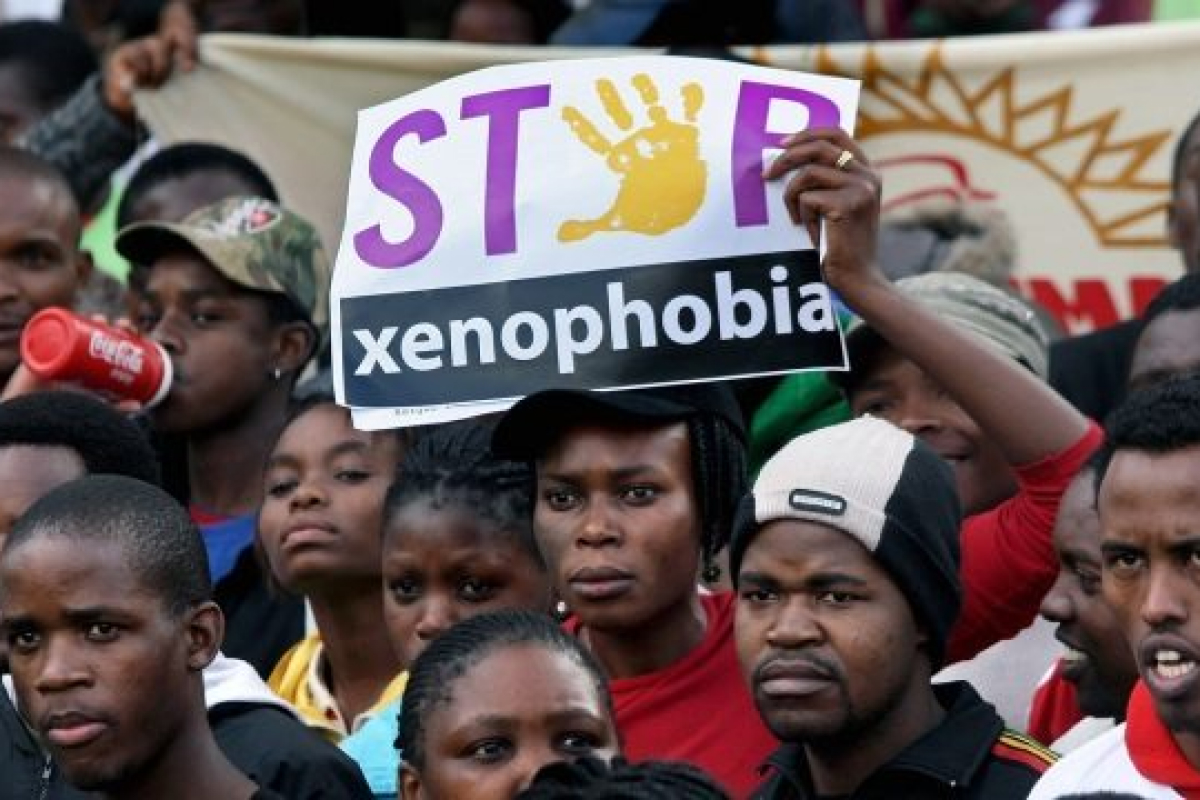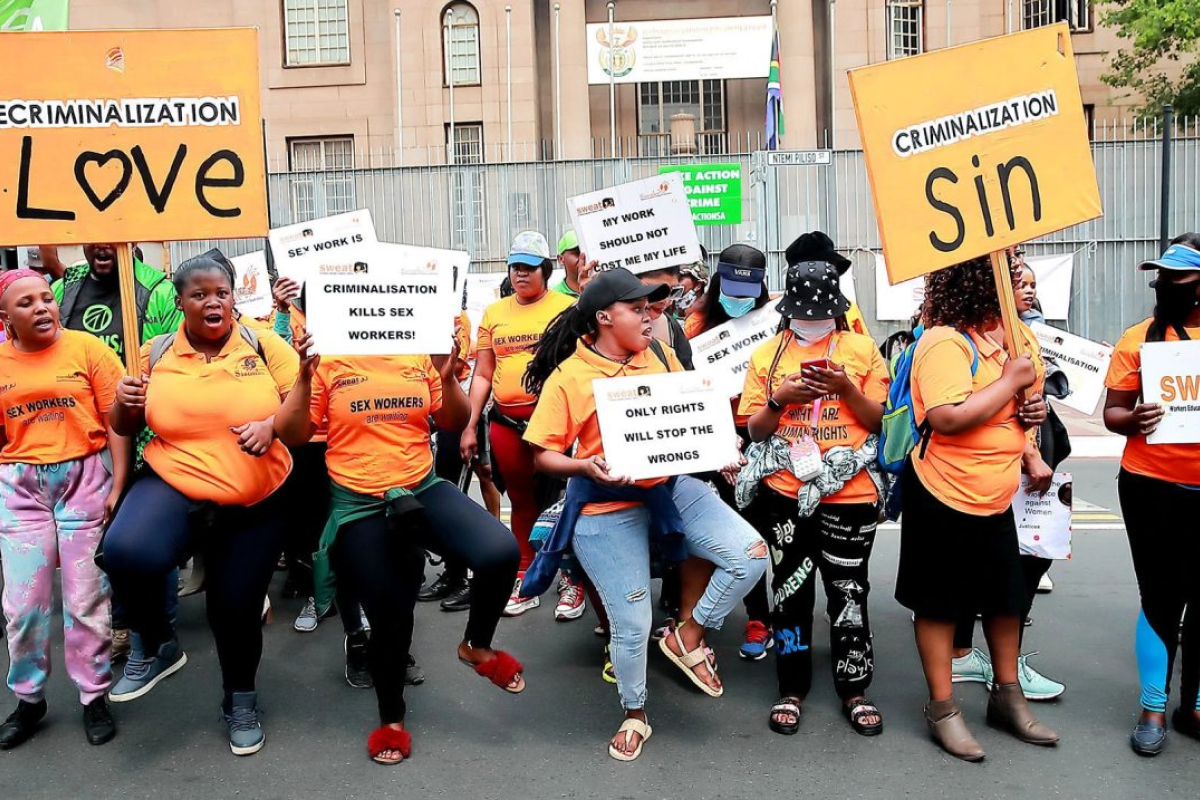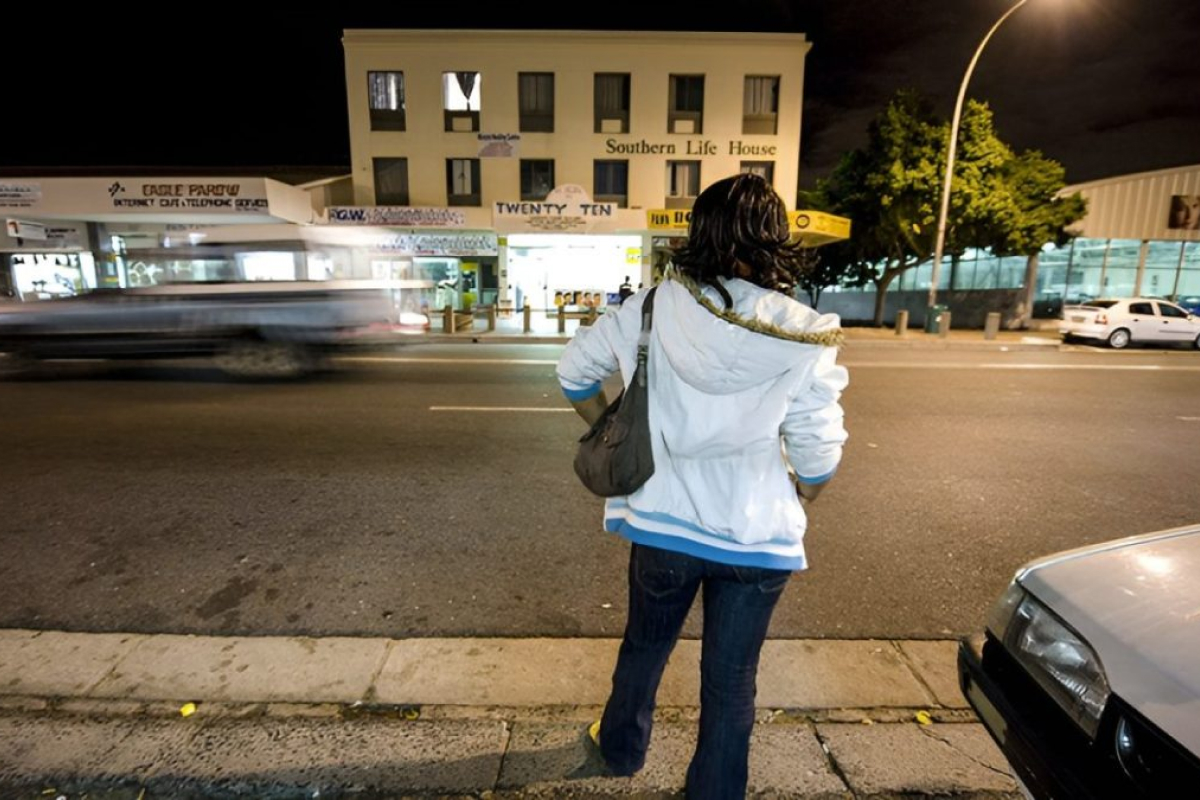As a co-founder and Co-Executive Director of Sonke Gender Justice, a multi-award winning South African NGO working globally to prevent gender-based violence, promote gender equality and promote human rights, Dean Peacock is shining a light on how men can make a difference. We asked Peacock to share his story with Aspire and offer up some advice on what men can do to level the playing field.
Q: What inspired you to take up this cause?
“I moved from South Africa to the U.S. in 1987 when I was 18 and became quite involved in lots of social justice activism, both as part of the anti-apartheid movement on the University of California Berkeley campus where I was studying, and also working with the Central American solidarity movement responding to illegal U.S. interventions, particularly in Nicaragua and El Salvador, so I moved in a very activist milieu. During that period, and when I lived in Central America, I began doing work with homeless and runaway youth in Managua, Nicaragua, then in San Francisco. Of course, the vast majority of the kids I was working with on the streets had run away because of violence at home – either directed at them or their mothers. A lot of the kids who were on the streets and sought services ended up affected by gender-based violence and sexual violence on the streets. So I began to think about how we prevent the violence before it happened, before it tore families apart and left young people on the streets dealing with the most awful circumstances, including being forced into underage sex work and being raped on the streets, sometimes leading to to HIV acquisition at a time when there was no treatment for HIV.
The need to do work to address men’s violence against women was very stark. Connected to that – being a young person growing up in South Africa – I was exposed to a particularly toxic form of masculinity: the militarized masculinity of the white Apartheid regime.
The work to address violence felt very important to me as a white South African who had grown up in a violent patriarchal society, founded on racialized and gendered inequalities and the frequent use of violence in all spheres of life. I was trying to make sense of my place in the world, and what I’d internalized from my upbringing in South Africa and what I needed to get rid of as well. I myself had also been assaulted a number of times on the streets in Berkeley and Oakland and was trying to understand the impact of that violence on me. With hindsight those were important factors in my decision to do work to address men’s violence. Another important factor was the activism and fierce commitment to social justice of my partner at the time. As part of her volunteer training at La Casa de las Madres, a battered women’s shelter in San Francisco, she met staff from Men Overcoming Violence (MOVE), a local batterer intervention program, and encouraged me to check them out and volunteer with them. She helped me realise that engaging men to end men’s violence was important political work that I, as a man who had grown up surrounded by violence, was well situated to do. While working with homeless youth, I then began volunteering at MOVE, initially working with adult perpetrators of violence and then, as part of my commitment to prevent violence before it started, established a youth program at MOVE on teen dating violence prevention in some of the roughest schools in San Francisco, then expanding it to young men in juvenile jails. That’s where I started. I did that work for much of a decade. In all of that work I was always struck by how desperate young and adult men were to talk about their challenges, the pressures of male socialization and their own experiences with violence. I heard many men say that they were deeply ashamed of their violence and wanted to understand where it came from and how to stop abusing their partners, many of them adults still dealing with the trauma of exposure to domestic violence as children.
When I first applied to volunteer at MOVE, I was asked what motivated me to do this work. I said then that I wanted to acquire skills I could take back home to South Africa. I was fortunate enough to come back to South Africa in 2001 and bring some of those skills here, working to implement the Men As Partners program which was focused on the intersection of masculinities, gender inequalities and HIV.
In 2006, when we established Sonke, we included work with men as a core area of our work and expanded it quite dramatically – both in terms of how we did the work and where we implemented it. At Sonke we have moved well beyond just running workshops and now use the media, policy advocacy, strategic litigation and network building to advance our goal of achieving gender equality. Sonke now works in 25 countries in Africa. We now have a significant global footprint particularly with our relationships with UN agencies. That’s my journey.”
Q: Where do you start to solve this issue?
“We do have alarmingly high levels of violence and HIV in South Africa compounded by glaring inequalities, very high levels of unemployment, very high levels of disillusionment with post-apartheid South Africa, and very strong patriarchal cultures, as well. Our starting point in this is that there isn’t a single starting point. You must work in a multi-sectoral fashion. You must use a range of different strategies to achieve change. Fundamental to our understanding of change is that you must be ambitious, you must work in a way that holds the potential for impact at scale. You can’t just do a community-based intervention, as important as those are. You’ve got to find a way of advancing changes in a way that’s ambitious and ideally sustainable.
We think the way you make this sustainable is to pressure our government to take seriously the obligations to equality laid out in our Constitution and the laws of the country. We say to the government, ‘We all fought for this constitution, there are a series of laws that are laid out in the constitution and we as citizens are going to support you to advance those rights and we are going to hold you to account when you don’t do your job.’
We use a mix of strategies. We have probably 50-60 branches across the country of community volunteers who engage with local government, municipalities, holding duty bearers to account. We also do a lot of outreach, peer education; we use strategic litigation when we need to, we’ve sued the prisons, we’ve sued the mining industry. We’re currently in front of the Constitutional court in a matter that we hope leads to a full ban on corporal punishment against children, which we know is a contributing factor to broader based gender-based violence in itself. We work with a broad cross section of South Africans, everyone from refugees and migrants to inmates to religious and traditional teachers, to journalists and the media houses and we attempt to affect change in a big, bold ambitious way.”
Q: There are those who believe this is a women’s issue and women will deal with it. What do you believe?
“Our position is very clear, in the same way racial justice in South Africa was led by black people, so the struggle for gender justice should be led by women. Our board of directors is currently 100% women, other than me as an ex-officio member of the board. Our staff is 70% women, our leadership team is 60% women. I have a co-executive director who is a black woman in South Africa. We take very seriously the issue of women leadership and men’s accountability to individual women and to broader women’s rights, organizations, and movements. We work very closely with our women’s rights partner organizations.”
Q: What is the role for men in achieving gender equality?
“It’s vitally important that men step forward and make our voices heard, particularly with regard to holding other men accountable for men’s violence and for upholding patriarchy and inequalities. A key piece of Sonke’s work has been to hold male politicians and men in positions of public leadership, men in high profile public positions, whether it’s in government or private sector or the religious sector, accountable. We do that nationally, locally. Then of course we do lots of work to educate men in local communities on women’s rights and the impact and extent of gender-based violence and have them engage in peer education at the community level or work with women to monitor the court system and ensure access to justice for survivors of violence.”
Q: What are three things men can do in their lives to advance this movement?
“Most importantly they can be role models. We all remember in our childhood the men who did things differently, who didn’t reproduce patriarchal practices at home, and lived their lives differently. Many of us drew inspiration from those men. That’s really important how they raised their children, taking full responsibility for 50% of the care work in home. Secondly, in their spheres of influence, men must speak out and make their positions clear on gender issues in the workplace or in the community more generally. Depending on where they are in their organizations, they can do different things to advance gender equality in the workplace. We work with congregations, we work with priests, pastors, rabbis, imams and give them speaking notes they can use from the pulpit and we work with the congregants to help them think about how they can challenge patriarchal practices in their place of worship. You can think about a range of different roles men play outside of the home. We give men tools to speak up and make sure that they can influence their spaces. A third major domain is to make sure men are activists politically, that they hold the local representatives, the state representatives to account.”
Q: As a white man working predominantly across Africa, do you encounter resistance?
“We’ve got a big team here and if we’re working in another country, we mostly work through local partners in that country. We are co-founders of the MenEngage Alliance which is in 70 countries around the world. We make sure the fundamental principle is that local people are best situated to do the work and we then support that by raising money and providing training and technical assistance. We have a team of religious leaders on staff who work with religious leaders. We have people from traditional communities who do that work. We have people from refugee and migrant communities, ex-inmates who work in their communities. We really try to make sure the people who are best able to work in local communities are the people who do that. I tend to lead on some of the international work, the workplace work, including traditionally white corporate sector places. We’re very strategic about who does what, where.”
Q: Are there countries that are beacons of light in Africa? Which ones are getting better and standing up for human rights for women?
“There are great organizations working in different countries, and just to name one or two of those, there’s an amazing organization called the Men’s Association for Gender Equality in Sierra Leone (MAGE). In Rwanda, there’s a group called The Rwanda Men’s Resource Centre [Rwamrec], they do fantastic work. Rwanda has done great things in terms of women’s participation. In Parliament leadership it ranks among the best in the world, but there’s also a very problematic political repression including of women in office, so it’s a mixed bag. There’s also exciting things happening in Ethiopia at the moment under new leadership. I don’t think we know what that means for gender equality. Namibia has produced some fantastic women leaders and seems to be paying attention to gender equality, but there are some countries where there are serious rollbacks in human rights: Tanzania, Uganda, Egypt…”
Q: What does the future look like to you?
“Firstly, more and more over the last two decades, the research has made it clear that children who are exposed to violence are much more likely to perpetrate violence in the case of boys and experience it in the case of girls. We have been working hard at addressing children’s exposure to violence, effectively banning corporal punishment. Together, with our partners, we are launching a campaign to ensure expanded support for children who’ve been exposed to violence and we’ve been monitoring the use of corporal punishment in schools where it is illegal but still widespread. We really want to push this notion that when it comes to violence against children it’s simply unacceptable. We have to go upstream to address some of the drivers of gender-based violence. We’ve expanded parental leave in South Africa, again with partner organizations – we hope that creates opportunities for parents to connect with their children in positive ways while we also promote alternatives to corporal punishment and the use of physical violence against children.
Secondly, we have been pushing very hard for what we call a national strategic plan on gender-based violence that should be fully costed, fully funded from treasury and have strong political leadership from the top. We were very glad that President Ramaphosa announced his commitment to putting a national strategic plan on gender violence in place next year, one that includes the necessary services to address the needs of survivors, and sufficient work on violent prevention to address the problem upstream so that we can reduce the levels of violence – and hopefully prevent it from occurring altogether. We know it’s not enough to simply provide shelter, counselling and services indefinitely. If we win those demands for service provision and prevention, we would be very happy.
The third dimension is a strong focus of our work is at the local government level, working with local municipalities to help them craft local plans and to embed violence prevention into the Integrated Development Plan and budget that determines priorities for each municipality in South Africa. There are lots of ways you get there. One example is to pay attention to the widespread availability of alcohol in South Africa. As in the case of the U.S., poorer communities get targeted by the alcohol industry, you can’t walk more than a few hundred meters in many townships in South Africa without coming across illegal taverns and we know there’s a clear relationship between alcohol availability, alcohol use, abuse and HIV acquisition. We want to do some work on that. Another way is to work with local courts to review their track record on GBV and then help them fix the barriers that impede women’s access to justice. Our team of lawyers is currently piloting this approach in a few municipalities.”
Q: California just passed a gender-quota law for corporate boards, Europe has had some of these in place for longer. Do you believe in quotas on boards? Does it help?
“Absolutely. The data, particularly the data that McKinsey [McKinsey & Company is a worldwide management consulting firm] has been producing is very, very clear that women bring different skills into the workplace and management teams are simply much better when they are equally represented in leadership positions, both as a quality of work issue and an equity issue, and a role modeling issue. It’s absolutely essential and without quotas we don’t get there.”
Q: Have we stepped back in the U.S. with President Trump and the Supreme Court judge controversy in this space?
“The paradox is you’ve got a president who admits to having sexually assaulted women, at least in what he thought was an off the record conversation, and the case of a supreme court judge, well, two really, [Brett] Kavanaugh and Clarence Thomas, with enormous clouds of controversies swirling around them, and that has galvanized the opposition, it’s galvanized women’s political leadership in ways that might not have been the case under a Clinton administration. The paradox of conservative reactionary administrations is that the progressive forces mobilize in response to them and then are sometimes a little bit passive in more progressive administrations. That’s not to say the Trump administration is a good thing. It’s dreadful. Trump is lowering the bar across the world so that political leaders like Duterte in the Philippines, Orban in Hungary, Netanyahu in Israel, Bolsonaro in Brazil and many others have a leader in the U.S. they can point to as an ally. That’s terrifying. What we’ve seen from the 2019 women’s march through to the widespread opposition to Kavanaugh is a remarkable mobilizing which is also now manifesting in progressive electoral wins, in state houses across the country and in Congress. It’s a very interesting moment…”
Dean Peacock’s Top Trailblazing Tips for Men to Fight for Gender Equality
|

